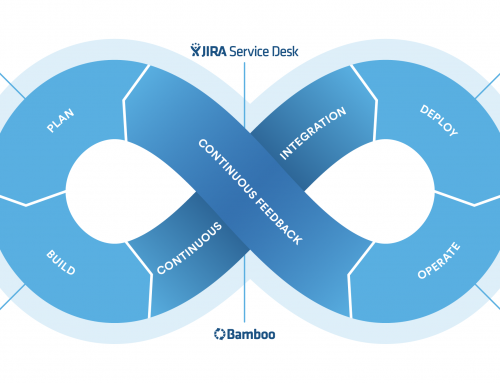DevOps is breaking down silos between development and operations teams and fundamentally changing how enterprises develop and deploy software and services, but medium- to large-scale voice over IP (VoIP) and unified communications (UC) platforms are also going to experience many of the same changes.
Consider the following examples.
1. Improve Control and Escalation Paths
The phone, collaboration, and conferencing are the lifeblood of many businesses, making outages and poor performance a business risk. Applying DevOps practices puts your development and operations teams in full control of service quality. Instituting DevOps processes behind your VoIP/UC platform streamlines escalation paths by eliminating bureaucracy and other roadblocks that too often get in the way of running reliable infrastructure.
2. Automation of Processes and Back-End Systems
DevOps promotes the automation of software builds, testing, and releases. A VoIP or UC platform can tap into that automation to deliver feature updates and patches to the platform on time and seamlessly. Working on VoIP or UC development and management is often an overhead task, so automating as much of the management as possible lets IT staff work on more strategic and client-facing tasks that can make the company money. Applying DevOps principles to testing VoIP phone configuration, platform, and infrastructure changes can help enterprises do more testing with fewer resources while delivering quality VoIP/UC services to their customers.
3. Help Move VoIP out of the Telephone Closet
DevOps also promotes the automation of software builds, testing, and releases. A VoIP or UC platform can tap into the automation to deliver feature updates and patches to the platform on time and seamlessly. Working on VoIP or UC development and management is often an overhead (read: not client-billable) task, so automating as much of the management as possible lets IT staff work on more strategic and client-facing tasks that can make the company money. Applying DevOps principles to testing VoIP phone configuration, platform, and infrastructure changes can help enterprises do more testing with fewer resources while delivering quality VoIP/UC services to their customers.
4. Stoke Competition among Cloud VoIP/UC Providers
I expect DevOps to stoke competition among cloud VoIP/UC providers by being a strong selling point for cloud VoIP/UC providers seeking to differentiate themselves from the competition. Customers seeking a robust, reliable, and scalable communications platform are going to want a provider standardized on DevOps practices.
In turn, VoIP and UC providers will have to make DevOps part of their sales pitch and marketing message, giving more customers a look under the hood as to how they manage their cloud platforms for customers.
5. Improve VoIP/UC Platform Security
VoIP security threats are constantly evolving, and DevOps gives operations team another tool in their security arsenal to combat threats encroaching in on their VoIP and UC platforms. Even with VoIP security tools in place, introducing DevOps behind the scenes of a VoIP platform will enable an operations team to create a new cyber-security model to improve VoIP/UC security.


